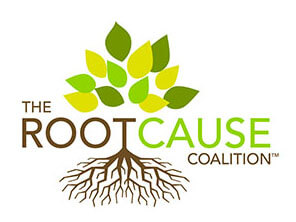One-Third of Americans are Unfamiliar with the Term “Maternal Health”
One-Third of Americans are Unfamiliar with the Term “Maternal Health”
The Root Cause Coalition's latest research underscores gaps in understanding about maternal health.
Released today, The Root Cause Coalition’s latest research underscores gaps in understanding about maternal health as well as experiences with and attitudes about this critical issue. While one-third report being entirely unfamiliar with the term ‘Maternal Health,’ this percentage is even greater among whites, those over 65 years of age, non-college educated and non-parents. In fact, more than half (54%) of those over 65 say that they are unfamiliar with this term.
When provided with the World Health Organization’s definition of Maternal Health, fewer than one-third of Americans believe access to quality maternal health care is adequate; one-in-five believe it is inadequate. This is especially true for arguably the most important demographic: one-quarter (24%) of females surveyed in the U.S. believe access to quality maternal care is inadequate. And among those who believe it’s only sometimes or entirely inadequate, one-third (32%) say that the biggest reason is because it’s unaffordable. One-quarter of Blacks (24%) say it depends on your race/ethnicity – a significantly higher percentage compared to whites (11%) and Hispanics (7%).
“This research underscores not only a need for increased education and awareness on maternal health issues and their impact on all of us, but moreover increased, meaningful action by all who are in a position of authority and influence to help bring about improved access, complete equity and better health outcomes for all women in our nation,” says Barbara Petee, President of The Root Cause Coalition.
“Maternal mortality rates are rising in the U.S., leaving behind families and children who will grow up never knowing their moms,” said Congresswoman Lauren Underwood (IL-14). “The evidence-based solutions are multi-faceted and require an all-of-government approach. That’s why it’s critical we invest in comprehensive solutions across health care, nutrition, and more, including those in my Black Maternal Health Momnibus Act, to save lives and advance birth equity across the country.”
Americans, however, are mixed on whose responsibility it is to improve access to quality maternal care. Responses ranged from the President (15% ranked this as top responsibility), state and local governments (14%), Congress (12%) and hospitals (11%). Significantly more parents (20%) than non-parents (12%) believe the President has the most responsibility for addressing this issue. Government-led assistance programs are largely supported, too. Eighty-five percent of individuals say they’re at least somewhat supportive of federal government programs that provide food and nutrition assistance to lower income individuals and families. More than half (51%) say they’re very supportive and this is especially true for lower income individuals earning less than $40,000/year (57%) as well as urban residents (59%).
Familiarity with specific programs is mixed, however. More than 20% are unfamiliar with the Women, Infants and Children Program (WIC); 39% are very familiar and 40% report being only somewhat familiar. WIC familiarity is highest among Blacks and parents, with roughly six in 10 stating that they’re very familiar with the program. It is not surprising, then, that more than six in 10 Blacks and nearly seven in 10 parents know someone who participates or has participated in WIC; this compares to just less than half of the general population.
When provided with an overview of what WIC does, more than half of Americans (51%) report being extremely supportive. A mere 3% report being not at all supportive. Finally, when mothers were asked about what society should prioritize for new mothers, more than one in five report access to nutritious, affordable food – not far behind is affordable childcare and paid maternity leave.
Methodology
1,000 interviews among adults age 18+ were conducted from April 8-12, 2022 using an online survey. The results were weighted to ensure proportional responses. The Bayesian confidence interval for 1,000 interviews is 3.5, which is roughly equivalent to a margin of error of ±3.1 at the 95% confidence level. The Root Cause Coalition Co-founded by AARP Foundation and ProMedica in 2015, The Root Cause Coalition is a non-profit member-driven organization comprised of more than 90 leading health systems, hospital associations, foundations, businesses, national and community nonprofits, health insurers, academic institutions, local governments, and policy centers. Our common goal is to achieve health equity for every American.
Please click here to view the full report.
